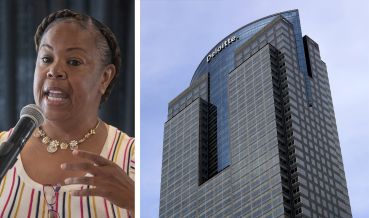CMBS Realized Losses Increased in December

“CMBS conduit transactions incurred approximately $130 million in realized losses during December 2022 via the workout of distressed assets,” wrote Marc McDevitt, senior managing director at CRED iQ.
“CRED iQ identified nine workouts classified as dispositions, liquidations, or discounted payoffs in December. All nine workouts were resolved with losses to respective CMBS trusts, which contrasted with prior months when at least some workouts were able to be resolved without losses.
“Loss severities for the month of December ranged from 7 percent to 100 percent, based on outstanding balances at disposition. Aggregate realized losses for December were approximately 12 percent higher than the previous month despite fewer workouts. On a monthly basis, realized losses for CMBS transactions averaged approximately $135.9 million during 2022.
“By property type, workouts were concentrated in retail, accounting for five of the nine distressed resolutions. Distressed workouts for retail properties had the highest total of aggregate realized losses ($104 million), which accounted for 74 percent of total losses for the month. The largest individual realized loss from CRED iQ’s observations was from a note sale of an $84.7 million mortgage secured by Blackpoint Puerto Rico Portfolio, a six-property portfolio of retail properties located in Puerto Rico.
“Prior to its distressed workout, the Puerto Rico properties had been in special servicing for 11 years. The loan’s resolution resulted in a loss severity of 100 percent based on outstanding balance at disposition. The workout also represented the largest individual loss severity and largest individual workout by outstanding debt amount in December.
“The second- and third-highest individual loss amounts for CMBS workouts last month were associated with lodging properties. Lodging was the only other property type besides retail with multiple distressed workouts in December.
“A real estate owned (REO) 303-key hotel, Hilton College Station, with $30.6 million in outstanding debt was liquidated in late November. The property, which transferred to special servicing in August 2019, became REO in June 2020 and was ultimately auctioned for sale in September 2022 for a price slightly higher than the asset’s December 2021 appraisal value of $20.7 million ($68,317 per key). The liquidation resulted in $14.9 million in principal losses, equal to a 49 percent loss severity.
“The second lodging distressed workout was also a liquidation of an REO hotel — Hampton Inn Suites — in Yonkers just outside New York City. The property had outstanding debt of $22.1 million and was liquidated with a 38 percent loss severity after more than five years in special servicing.
“Excluding defeased loans, there was approximately $7 billion in securitized debt among CMBS conduit, single-borrower large-loan, and Freddie Mac securitizations that was paid off or liquidated in December, which was approximately a 4 percent decrease compared to $8.2 billion in November.
“In December, 2 percent of the loan resolutions were categorized as dispositions, liquidations or discounted payoffs. The percentage of distressed workouts was 6 percent in the prior month. Roughly 36 percent of the loans were paid off with prepayment penalties, which was in line with the prior month.
“Excluding Freddie Mac securitizations, multifamily had the highest total of outstanding debt payoff in December with approximately 37 percent of the total by balance. Retail and office were the next property types with the highest outstanding debt payoff with 20 percent and 18 percent of the total, respectively.
“Among the largest individual payoffs was a $481 million mortgage secured by a 43-property portfolio located across 10 states and owned by the Chetrit Group.”


